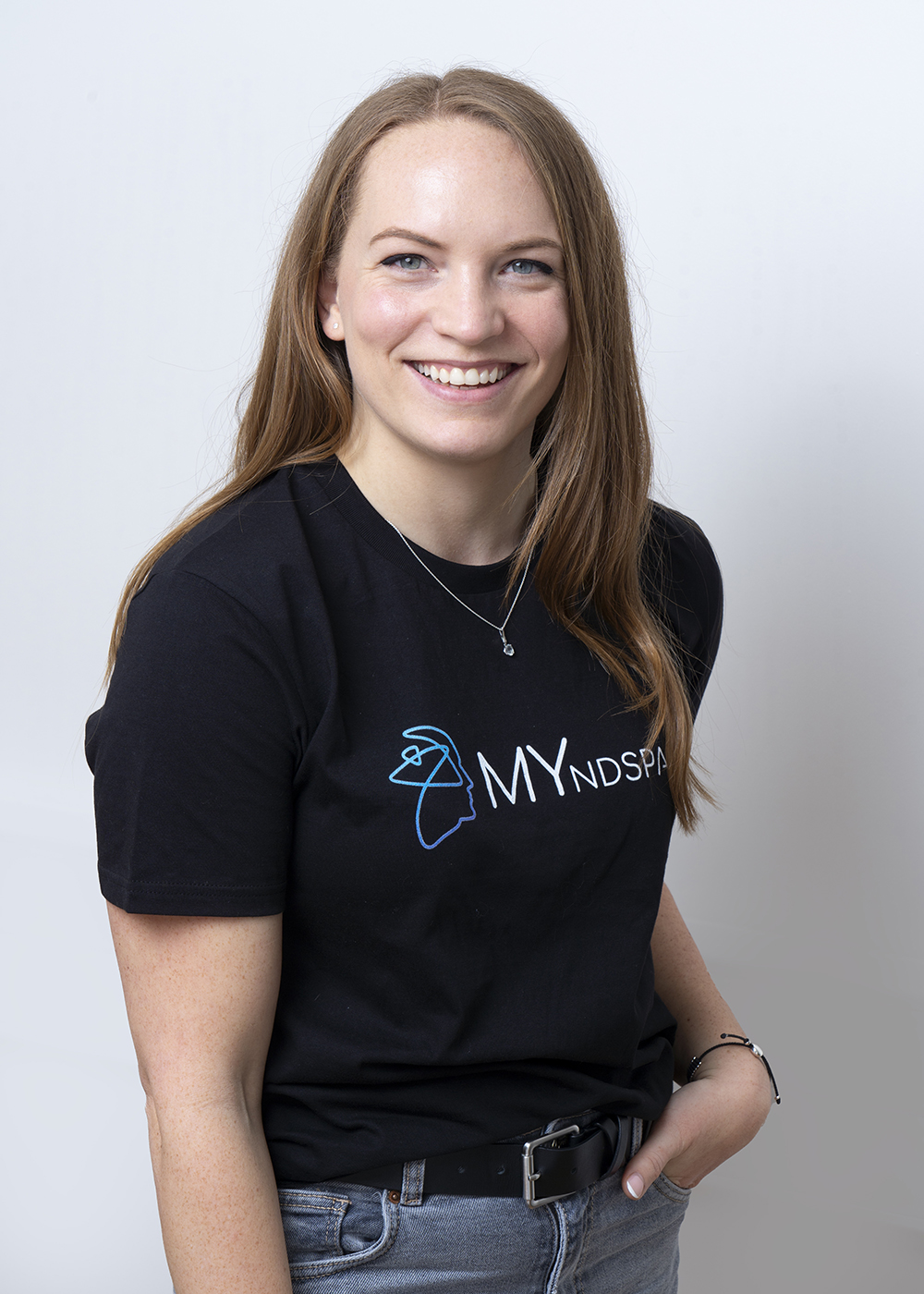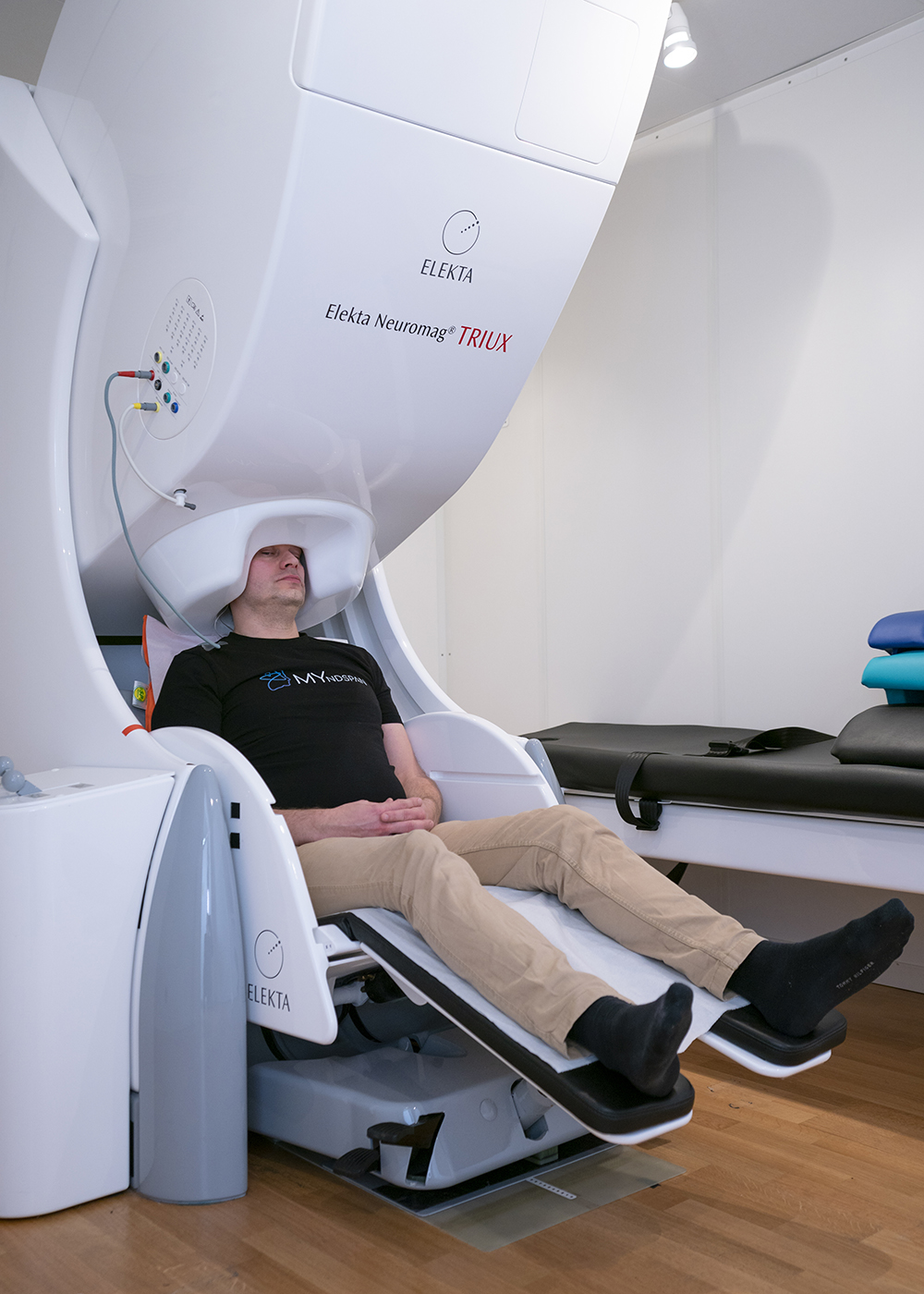The key to a healthy brain
Q&A - 19TH MARCH 2024
Caitlin Baltzer, CEO of brain wellness and analytics company MYndspan, on MEG scans, long-term monitoring and the simple lifestyle choices that make a big difference
Last week was Brain Awareness Week, a global campaign created to raise awareness of brain science. To celebrate the progress being made in this area, Caitlin Baltzer, co-founder and CEO of brain wellness and analytics company MYndspan, talks about MEG scans, long-term monitoring and the simple lifestyle choices that make a big difference.
Tell us about MYndspan. What does the company do?
We were founded in 2020 with a mission to optimise brain health on a global scale. We do this by monitoring and reporting on brain health at intervals over extended periods of time. Our aim is to empower users to assess, benchmark and monitor their brain function to extend the healthy lifespan of their mind. Our objective measurement of brain function is informed by 35 years of research and 300-plus peer-reviewed studies and is powered by our proprietary brain analysis that utilises magnetoencephalography (MEG) technology. MEG is a non-invasive brain scanner that maps brain activity in real time with pinpoint precision, providing a baseline assessment of an individual’s brain health. With the aid of clear and concise reporting over time, our experts support and educate users on how their brain is behaving and why.
What is meant by ‘brain health’?
Brain health refers to the overall physical, mental, cognitive and social wellbeing of the brain – not just the absence of injury, or psychological or neurological disorders. Currently, there are limited options to monitor brain health but we’re trying to change that. Until now, MEG technology has typically only been used in research or elite clinical settings, making it difficult for the general public to access the insights it can provide – our goal is to make this technology accessible to everyone.

Caitlin Baltzer, co-founder and CEO of MYndspan
What happens during the assessment?
The service itself is quick and straightforward. Customers can attend one of our partner scanning sites, where they will first be asked to participate in gamified tasks using an iPad to measure cognitive functioning. This is then followed by a completely silent and non-invasive 10-minute MEG scan. Within 24 hours, we’ll send a personalised report detailing their cognitive health and brain activity.
What are you looking for during the brain assessment?
We measure the electrical signals in the brain to create a detailed report of what normal brain activity looks like for an individual. We pay attention to different aspects of brain activity – for example, how active certain areas are, how different parts of the brain are working together and how stable its activity is. Once we have an understanding of what ‘normal’ brain activity looks like for that individual, we can use it as a baseline to compare to over time. Any deviations from this can potentially indicate accelerated ageing or injury.
Why is looking after your brain health so important?
We know that one in six individuals will experience a neurological condition at some point in their lives. When it comes to dementia, the good news is up to 40% of cases are preventable through lifestyle modifications. Expanding access to advanced technology like MEG could help to catch the early warning signs of conditions like Alzheimer’s before symptoms emerge. Objectively measuring the impact of lifestyle choices – like sleep, nutrition and exercise – on the brain means that appropriate adjustments can be made to prevent further deterioration.

A MEG scan being carried out
What lifestyle choices can we make to improve our brain health?
At MYndspan, we champion the three pillars of brain health: sleep, nutrition and exercise. They're straightforward, accessible, and often more impactful than any prescription. Lifestyle factors such as obesity, smoking and alcohol intake, for example, have all been shown to increase the risk of cognitive decline and dementia. Assessing how each lifestyle choice impacts the brain allows individuals to take actionable steps to improve cognitive longevity. As Dr Anna Lembke, an American psychiatrist, puts it: “Exercise offers a deeper and longer-lasting positive impact on mood, anxiety, cognition, energy, and sleep than any medication.”
Is monitoring brain health a relatively new concept?
Unfortunately, it is. This is mainly because the technology needed wasn’t accessible until now. The brain has been relatively unexplored in comparison to cardiovascular health or oncology, for instance. This is surprising given the vital role of brain function in relation to our overall wellbeing. Only now, in the face of a mental health crisis, are we starting to fully realise the effect that lifestyle factors have on the brain.
Do you think it will become as routine as a blood pressure check in the future?
Absolutely! When it comes to monitoring wellbeing, people have many options to track their sleep, heart rate and exercise. Brain health should be prioritised in the same way, as it is an inherent part of our overall wellbeing.
-
FEATURE
An expert guide to heart health
For National Heart Month, Dr Gosia Wamil, a cardiologist at Mayo Clinic Healthcare, answers our questions on maintaining a healthy heart
-
FEATURE
An expert guide to common refractive errors
Mr Alex Shortt, consultant ophthalmic surgeon at Optegra Eye Hospital London, on common eye conditions that affect our ability to focus
-
FEATURE
An expert guide to ADHD
Dr Mihaela Bucur, consultant psychiatrist at All Points North (APN) London, offers valuable insights into diagnosing and treating ADHD in adults
-
FEATURE
An expert guide to hyperpigmentation
Dr Ariel Haus of Dr Haus Dermatology on how state-of-the-art laser therapy is redefining the treatment of melasma and other pigmentation conditions